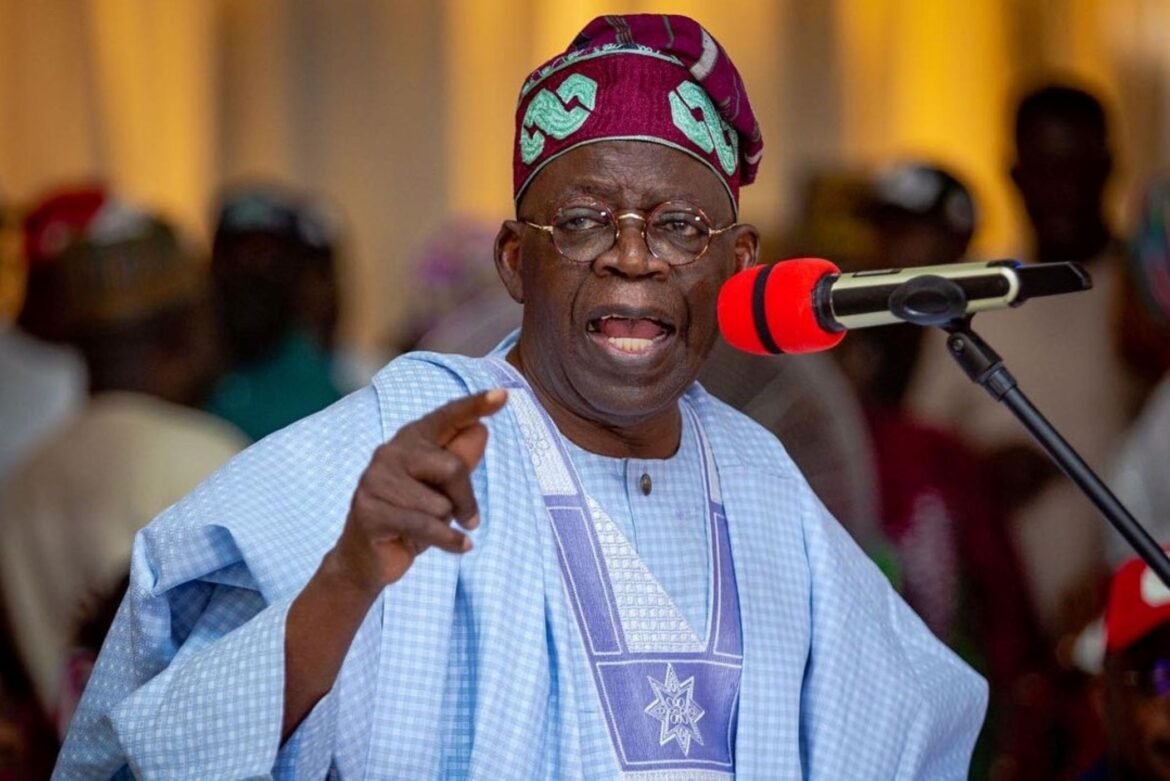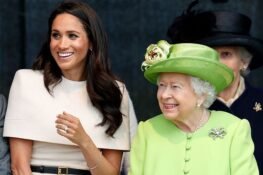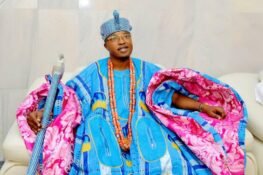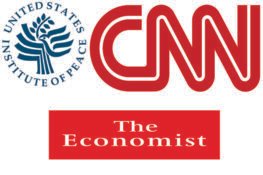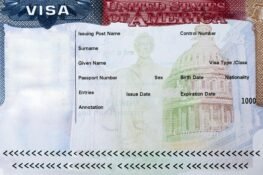The economic divide between political leaders and ordinary Nigerians has become a chasm, with politicians increasingly living in a world of immense wealth, comfort and privilege, while the common man struggles to eke out a living.
Politicians and their families live in affluence, while the quality of life of the average citizen is declining, creating the path to a class-based society, delineated by being a voter or a senior public official.
The stark contrast between the governors and the governed should be a concern for the ones in power – all because, ultimately, power belongs to the people in any society.
History teaches us that the people will restore power to themselves no matter how long it takes.
Budgets at the federal and state levels are increasingly exposing the disconnect between politicians and the people who elected them.
While a president may be more interested in refurbishing the presidential air fleet or residence, the common man is only asking for affordable food.
At no time in our national history has there been such a wide divide between the ruler and the ruled than today.
Since the return to democracy in 1999, Nigerian politicians have amassed significant personal wealth, often through dubious means.
Many own sprawling mansions, drive luxury cars, and send their children to expensive schools abroad. Nearly all top politicians send their kids to acquire university degrees outside of Nigeria.
Lawmakers in Nigeria earn one of the highest salaries for elected leaders anywhere in the world, according to a study by the Independent Parliamentary Standards Authority (IPSA), when more than half of the country’s population live on less than $1.90 a day.
While more than half of Nigerians live on less than N2,000 per day and face challenges such as food insecurity, lack of access to healthcare, and poor housing and education, politicians live large, holding parties at stadia and cruising around in multi-million naira vehicles worshipped by the very people they oppress.
Politicians are taking everything in the public treasury for themselves, leaving crumbs for the rest of the society.
The disparity in economic realities is evident in the recent scandal involving the purchase of luxury SUVs for senators and members of the House of Representatives.
The opulent lifestyles of politicians and financial priorities are creating a growing sense of alienation with the APC administration of President Bola Tinubu
While the country grapples with economic recession and high unemployment from the falling worth of the national currency, legislators allocated funds to purchase 469 Toyota Land Cruiser SUVs, each costing a staggering ₦160 million.
Their dumb justification for buying vehicles worth ₦75 billion is that each federal minister has four of the same official vehicles.
This extravagant expenditure has ignited public outrage, highlighting the blatant disregard for the plight of ordinary Nigerians.
The opulent lifestyles of politicians and financial priorities are creating a growing sense of alienation with the APC administration of President Bola Tinubu.
Many Nigerians increasingly feel that their elected representatives are out of touch with their struggles and no longer represent their interests.
This perception is further fueled by the lavish displays of wealth often seen on social media, where politicians flaunt their expensive possessions and extravagant vacations.
Recently, videos of the celebration of the birthday of the Senate President, Mr. Godswill Akpabio, at a stadium packed by his followers, littered the social media and sent all the wrong signals.
Such a disconnect is exactly what causes a decline in trust and confidence in democracy.
Nigerians are increasingly disillusioned with the political process, believing that politicians are only interested in enriching themselves, rather than serving the people.
While tone deafness among politicians is not new, it is getting worse.
In 2019, Nigerian senators purchased 108 Toyota Land Cruiser Prado SUVs for themselves at a cost of over N5.5 billion.
This extravagant expenditure sparked public outrage.
They got away with it then; and they plan to get away with it in 2023.
The profligacy is not restricted to the federal government.
Many state governors maintain extravagant convoys with numerous luxury vehicles, often exceeding their official needs, blatantly insensitive to the plight of the poor and a symbol of government prodigality.
Osun State pays a manager for the fleet of cars in the governor’s office.
But it is not unique.
From state to state, the reality is that public funds are being wasted or stolen.
In Rivers State, the State House of Assembly complex comprising about six buildings were demolished this week due to a political disagreement between the governor, his godfather and the legislators.
These buildings were erected just a few years ago.
Taxpayers will pay heavily for the squabble between political camps.
Throughout the eight years of President Mohammadu Buhari, he freely took medical trips abroad on taxpayers’ funds, without ever disclosing the nature of the treatments.
His medical excursions contrasted the lack of adequate healthcare facilities available to ordinary Nigerians.
Nigerian government officials waste public funds on expensive first-class travel and luxury hotels during official trips abroad.
At the COP28 climate summit in the UAE, the scandal was around how many officials travelled at taxpayers’ expense – 422 or 1,411 officials.
Whatever the correct number was, Nigerians felt being ripped.
Over the years, the Nigerian government has invested billions of dollars in power generation projects that have either failed to deliver or have been riddled with corruption and mismanagement.
These failed projects represent a significant waste of resources that could have been used to improve the lives of millions.
Such investments have sown mistrust in the ability of the political leadership to deliver, while dividing Nigerians into hard political camps.
The signs are appearing that the new Tinubu administration is business as usual.
People are beginning to see the same lack of prudence as they have experienced before.
Last month, President Tinubu signed into law a supplementary budget of N2.176 trillion, sparking controversy and debates about its necessity and potential for waste. A breakdown of the budget shows some alarming wastefulness.
While the supplementary budget allocates funds for important areas like security and infrastructure, the inclusion of luxurious items, questionable legislative expenses, and concerns about transparency raise questions about its efficiency and potential for waste.
The budget allocates significant funds for government officials to travel abroad, often for conferences and meetings that could be conducted virtually, and provides funds for projects that are already funded in the main budget.
In it, government ministries and agencies allocated funds for entertainment activities, such as concerts and sporting events, which are frivolous and unnecessary, especially considering the pressing needs of the country.
The budget also allocates significant funds for government ministries and agencies to engage in public relations and propaganda, which can be seen as an attempt to manipulate public opinion rather than addressing real issues.
While extravagant expenditures are on the ticket, the budget allocates insufficient funds for essential services such as education, healthcare, and infrastructure development.
The budget highlights a disconnect with the needs of the people.
Let’s not forget – no one can fully document the profligate spending of Nigerian politicians.
These are just a few examples of wasteful and extravagant expenditures. A comprehensive analysis would take years to document.
But ordinary Nigerians cannot just watch things deteriorate and condone the widening economic divide between their politicians and the common man.
It requires urgent action because the consequences of inaction are dire. The economic divide will fuel social unrest and instability if nothing is done.
The erosion of public trust in government leading to widespread disillusionment needs to be halted. If left unchecked, the drift could ultimately threaten the very fabric of Nigerian society.
The people are not helpless and their only solution is not mere complaints on WhatsApp, Facebook and X.
Political mobilisation and community organizing are an absolute necessity.
Holding corrupt officials accountable is essential to deterring future abuses and ensuring that public funds are used for the benefit of the people
People need to connect politics to their welfare, and they must move the political barometer in the direction they want.
There must be demands for further reformation of the electoral system, particularly to reduce the cost of running for office, making it more difficult for wealthy individuals to buy their way into power.
The alure of wealth from politics must be broken.
Those who wish to go to politics must know that they would come out of it as rich as a school teacher.
Politicians need to be held accountable and prevented from enriching themselves through illicit means.
Anti-corruption agencies are not doing a good job.
Holding corrupt officials accountable is essential to deterring future abuses and ensuring that public funds are used for the benefit of the people.
The people must demand that the ICPC and EFCC do their job.
The government needs to allocate more resources to essential services such as healthcare, education, and infrastructure.
Increased spending will help to improve the quality of life for ordinary Nigerians and reduce the economic divide.
However, change will not just happen without intervention. The people will have to demand for it.
Nigerians must add to their prayers, action. Citizen action!
